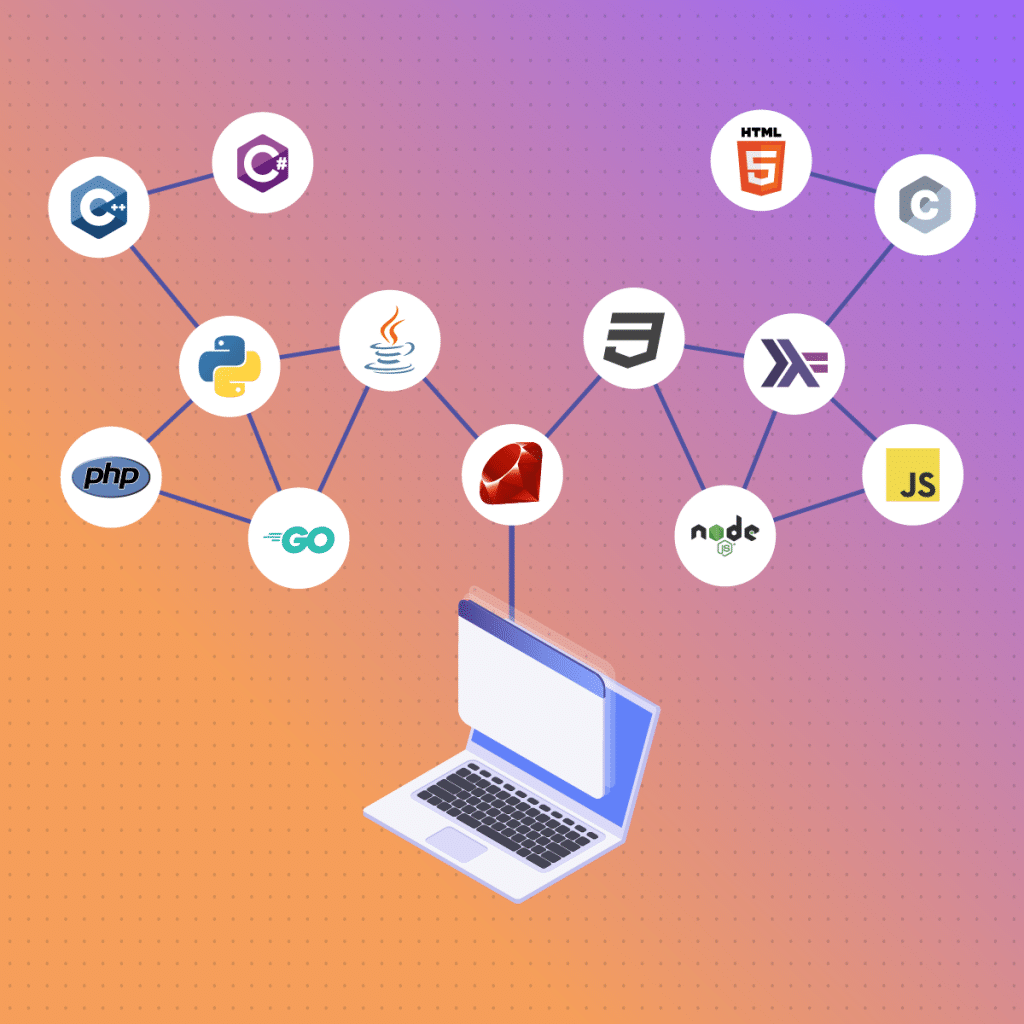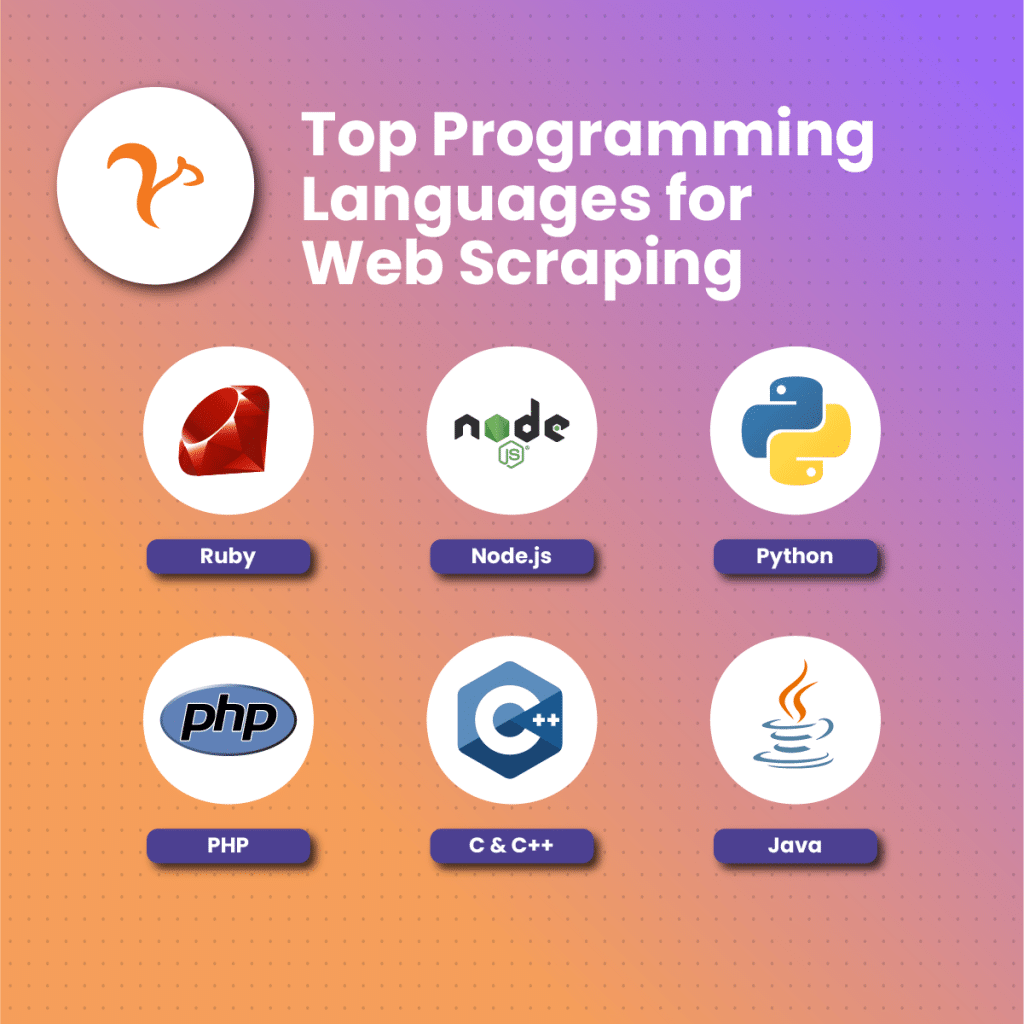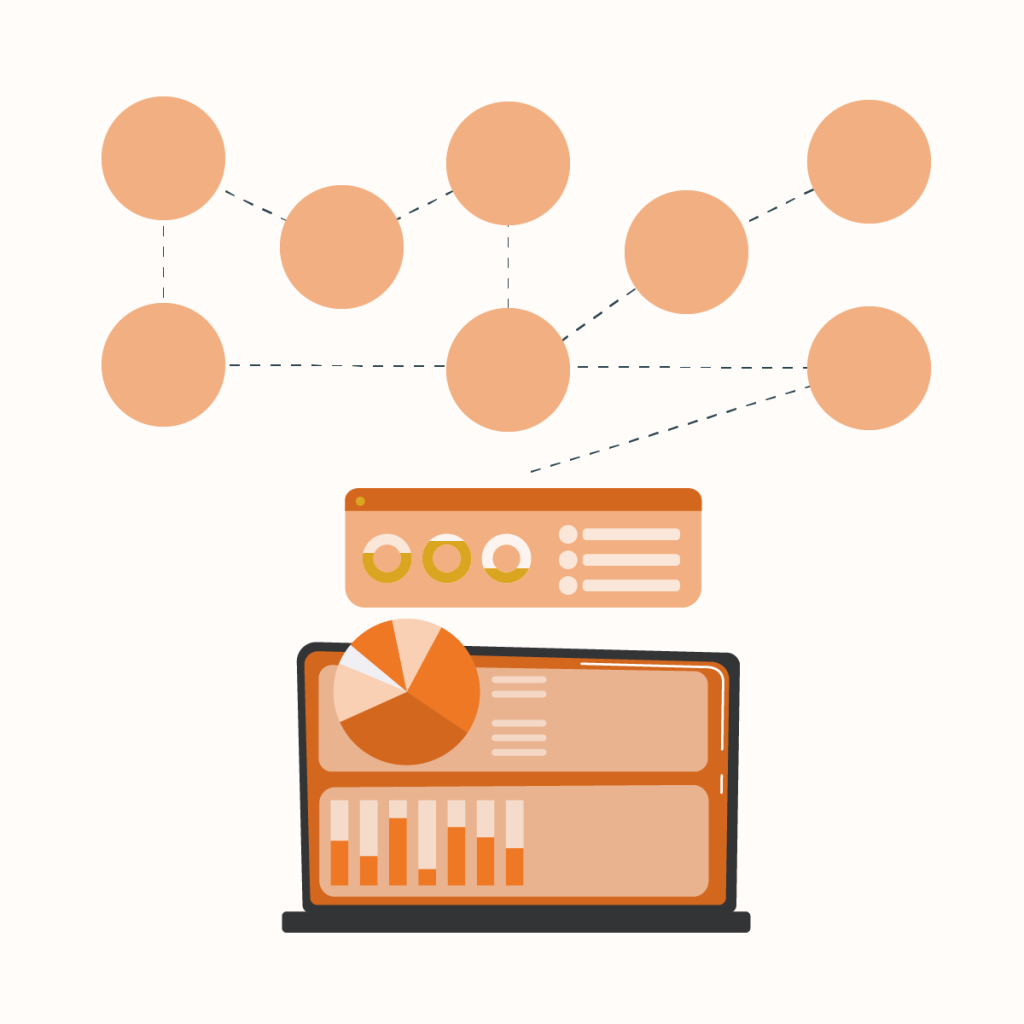Introduction To Languages For Web Scraping

Programming languages are so versatile that they have various applications, including web scraping. The choice of programming language for web scraping can make all the difference in performance. Therefore, it is essential to choose the best language for web scraping. Many businesses across various industries rely on data scraping for analysis, monitoring, and decision-making.
If you are writing a customized scrap bot for your needs, you need to find the best language for web scraping. However, selecting the best language for web scraping can be challenging, as there are various options with their unique features and limitations.
Therefore, this guide will examine the best language for web scraping, its features, limitations, as well as FAQs.
Let’s dive in!
Factors to Consider Before Choosing the Best Language for Web Scraping
The first that comes to mind is, “how can I choose the best language for web scraping?”
Since you cannot use all the programming languages, you need to have a checkbox to determine which is most compatible for your web scraping needs. We shall examine some factors to consider before choosing the best language for web scraping. They include:
Project size
The size of your project is a factor to consider when selecting the best language for web scraping. Bear in mind that some programming languages are resource-intensive and require lots of time to process large volumes of data.
On the other hand, some programming languages are fast and scalable even for large scale web scraping activities. Therefore, it is critical to determine the scale of your activities before choosing the best language for web scraping.
Performance
Performance is a critical consideration when choosing the best language for web scraping. The performance depends on the strength of the language, execution time and more. For example, suppose you need to scrape multiple pages several times a week. In that case, the speed performance will determine the best language for web scraping.
Consequently, the best language for web scraping can build a web scraper that guarantees uninterrupted operation.
Scraping dynamic content
Website structures are constantly evolving, so the choice of the best language for web scraping has to be the one that can handle it. Many websites, especially social media platforms, use JavaScript to load and display their content. Therefore, the best language for web scraping will be one that supports dynamic content.
Determine whether the programming language supports headless browser libraries, which are required to render dynamic web pages. In addition, the web scraper should be able to imitate a real browser to bypass browser fingerprint challenges.
Libraries
The resources and functionality of the libraries are critical factors to consider when choosing the best language for web scraping. Although building a web scraper from scratch is possible, the process is optimized with the right libraries.
Most programming languages have libraries with built-in features that streamline the web scraping process. Consequently, you can get the work done faster and more effectively. Therefore, when selecting the best language for web scraping, it is best to prioritize languages with extensive library functionalities.
Community support
Another significant factor to consider when deciding the best language for web scraping is community support. Popular programming languages like Python often have large and active communities. The responsiveness of the community can play a significant role in the success of your web scraping activities.
So why is the strength and activeness of a community important? When you face challenges, which you most likely will, you can easily find solutions or experts on various platforms that can provide meaningful insights on the best strategy.
Learning curve
The learning curve describes the ease of learning and setting up the programming language. This is a significant factor when choosing the best language for web scraping because it has a significant impact on the project’s timeline.
Some languages are easier to learn than others, so consider the knowledge of your team. Consequently, the difficulty of a programming language reflects the skills as well as the time required to complete the project. Therefore, consider the available time and skills when choosing the best language for web scraping.
Documentation
The official documentation of a programming language is a valuable material that helps you understand its function and the best way to utilize it. Therefore, you must consider the documentation when selecting the best language for web scraping. This documentation includes examples, codes, and a manual that guides you in building a web scraper.
If you are stuck at a function, you can easily refer to the documentation to get knowledge on how to do it. However, if the language lacks comprehensive documentation, you would have to spend more time scouring the internet for answers.

Six (6) Best Languages for Web Scraping
You can optimize any process with the right tools. Now that we have examined the factors to consider before choosing the best language for web scraping, let us check out the top languages, their features and limitations.
1. Python
Our first choice for the best language for web scraping is Python, which is arguably the most popular programming language. This versatile language is easy to learn, which makes it a top choice for the best language for web scraping.
Features of Python
- Ease of use: Python is often preferred as the best language for web scraping because it is simple to use. It is less complex than other languages, which makes it the best language for web scraping.
- Simple codes: Another reason why Python may be the best language for web scraping is it does not require bulky codes. With a simple code, you can access, retrieve, and store data from websites.
- Libraries: Python stands out as one of the best languages for web scraping due to its extensive libraries. It has libraries that can handle almost all processes related to data extraction. The most popular libraries include BeautifulSoup and Request, which make extracting data from web pages seamless.
- Active community: One of the criteria for selecting the best language for web scraping is active community. Python has a large, dynamic and active community. Consequently, you can easily get assistance from experts.
Limitations of Python
- Complex options for data visualizations: Python, as one of the best languages for web scraping, offers various options for data visualization. While this may be an incredible feature, it can be overwhelming, especially for beginners. Selecting the best option for your needs may be challenging.
- Weaker database access protocols: Although Python’s database access protocols are great, they are often considered weaker than other languages. Therefore, this could be a limitation for use as the best language for web scraping.
- Speed: Python is not the best in terms of speed; it is slower than Java. Bear in mind that the speed of web scraping depends on the request code. Therefore, if you use bulky codes, your web scraper may not perform at high speed.
2. Java
Java is another programming language that tops the list of best languages for web scraping. This platform-independent language is popular for its multithreading capabilities. It is one of the best languages for web scraping due to its robust features. In addition, Java offers advanced multithreading abilities.
Features of Java
- Supports web scraping libraries: Java supports various tools, libraries and external APIs designed for web scraping. The common ones include JSoup, HTML Unit and Jaunt, which makes it one of the best languages for web scraping. JSoup is a simple yet highly efficient web scraping library that supports tasks like CSS selection and DOM traversal. It also has a simple API that makes data extraction from HTML and XML documents efficient.
On the other hand, HTMLUnit is ideal for interacting with dynamic websites including activities like form submission. Meanwhile, Jaunt is an exceptional library for extracting data from HTML and JSON web pages.
- Cross-platform compatibility: Courtesy of the Java Virtual Machine, Java is a platform-independent language. Since it is compatible with various platforms, it is one of the best platforms for web scraping activities.
- Community support: Since Java is a widely used programming language, it has a large and vibrant community. Therefore, new users can easily seek assistance from the community to address issues related to web scraping. Consequently, it meets the criteria for the best language for web scraping.
Limitations
- Requires more resources: Although Java is one of the best languages for web scraping due to its stability, it often requires more resources compared to Node.js and Go. Therefore, this could affect the speed of web scraping activities, which is a limitation where speed is critical.
- It is not recommended for complex projects: Although Java supports the development of excellent web scrapers, its design and performance may not be suited for advanced projects. Consequently, it may not be the best language for complex web scraping activities.
3. Ruby
Ruby, although not as popular as Python or JavaScript, is among the best languages for web scraping. It has a simple-to-understand syntax, which makes it very beginner-friendly. Many experts believe that Ruby is a better alternative to Python.
First, it offers a simplified solution to handle broken HTML fragments. In addition, it is an exceptional language for cloud development and deployment, which simplifies the process of building a web scraper.
Features
- Nokogiri Library: The Nokogiri Library is designed to handle broken HTML easily. In addition, extensions like Sanitize and Loofah simplify the process of collecting data from problematic HTML structures, which optimizes the efficiency of web scraping.
- Build web scrapers with minimal experience: Ruby is one of the best languages for web scraping because it is easy to understand. In addition, it has versatile libraries, including Nokogiri, HTTParty, and Pry. They have built-in features that can help you build web scrapers with minimal experience.
- Cloud development and deployment: Ruby’s capabilities extend to cloud development and deployment, which gives it some edge over Python. Since the Ruby Bundler system is an excellent tool for the management of packages from GitHub, it facilitates the efficiency of web scraping activities.
Limitations
- Backed by a community of users: Unlike other languages that have corporate support, a community of users backs Ruby.
- Reduced speed: Ruby has a slower performance compared to Python and Node.js. Therefore, it may not be the best language for web scraping, which demands speed or a large amount of data.
- Documentation: Ruby lacks comprehensive official documentation. Therefore, if you run into problems while building a web scraper, there is no comprehensive reference document to rely on.
Also, Ruby is one of the best languages for web scraping on a small scale.
4. JavaScript with Node.js
Are you looking for a fast and scalable programming language? Then, Node.js may be the best language for web scraping. JavaScript without Node.js would not make it to the list of the best languages for web scraping. This is because it was designed to add only rudimentary scripting – which was limited to browsers.
However, with the addition of Node.js, JavaScript has become one of the best languages for web scraping.
Features
- Versatility: JavaScript with Node.js- a runtime environment is a versatile programming language. With the integration of Node.js, you can execute JavaScript outside the browser. This expansion in capability makes JavaScript one of the best languages for web scraping.
- Scalability: Node.js is a non-blocking I/O model, which makes it an excellent choice for extracting large quantities of data. This feature makes it an efficient option for making scalable web scraping solutions.
- Dynamic content: The integration of Node.js with JavaScript is an excellent choice for scraping dynamic content. This makes the language a top contender for the best language for web scraping. In addition, you can leverage it to create non-blocking I/O applications, which facilitates seamless API integration for web scraping activities.
- Libraries: Node.js supports popular libraries, including Puppeteer and Playwright, which makes it one of the best languages for web scraping. These libraries extend the functionalities of JavaScript for scraping dynamic websites.
- Active community: JavaScript is a very popular programming language, so it has a large and active community. This is one of the criteria to consider when selecting the best language for web scraping. As a result, you have access to resources and expertise to support you if you face any challenges during the process of web scraping.
Limitations
- Unsuitable for resource-intensive activities: Node.js is a one-process-per-CPU-core model, which restricts its ability to scrap a high amount of data. Therefore, the web scraper may be slow and less effective if your web scraping activities are resource-intensive. JavaScript may not be the best language for long-term web scraping activities.
- Complex language: It has a steep learning curve. This means JavaScript, especially when integrated with Node.js, may be difficult to learn. Therefore, if you are looking to utilize a language that is easy to learn, you should consider Python as the best language for web scraping.
5. C++
C++ is an old programming language that has been around for about 40 years. This general-purpose language has also found a use in web scraping activities.
Features
- Robust library: C++ has a large availability of libraries, which makes it one of the best languages for web scraping. For example, the libcurl library is used to make HTTP requests, which is a critical step for extracting data from websites. Another powerful C++ library is HTML Tidy, which can effectively clean and parse HTML data.
- High performance: C++ is a high-performance language which ensures codes are quickly executed. Consequently, it is one of the best languages for web scraping involving a large volume of data.
- Scalability: Since C++ is an object-oriented programming language, it is highly scalable. Therefore, a code can be reused with some modification to do what you need.
- Memory management: This language may be among the best for web scraping because it offers control over memory management. Subsequently, it is less resource-intensive for web scraping activities.
Limitations
- Steep learning curve: C++ is difficult to learn. It would not be the best language for web scraping if there are no available experts. In addition, using it to build a web scraper can be quite expensive.
- Simple web scraping: This language is limited to simple web scraping. Therefore, if your project is complex or requires a dynamic scraper, C++ is not the best language for web scraping.
- It is static: The static nature of C++ limits its use for dynamic activities. Therefore, it is not the best language for web scraping if you need dynamic solutions
6. Golang
Golang or Go is a relatively new programming language by Google. It has a lot of potential, and it is often compared to Python, as one of the best language for web scraping. If you need a fast alternative to scrape multiple websites simultaneously, try Golang.
Features
- Speed: One of the reasons Golang is moving up fast as the best language for web scraping is speed. Since the language is compiled from the binary file, it does not depend on a virtual machine to create a web scraper. In other words, the code is readable before it starts running, which makes it much faster than older options like Python.
- Concurrency support: Golang has built-in concurrency support, meaning you can scrape numerous pages at the same time. This feature is top-tier when considering the best language for web scraping activities.
Limitations
- Difficult to learn: One significant limitation of Golang is that it is difficult to learn. However, it may be less complicated if you are familiar with Java or C programming languages.
- Difficulty in maintaining web scrapers: Another primary limitation of this language is that it is not efficient in maintaining web scrapers. Golang does not support the usual “try/catch” approach to handling errors, which makes it less preferred than other languages.
Optimize the best language for web scraping with Proxies
We have reviewed six (6) programming languages to help you determine the best language for your web scraping needs. However, selecting the best language for web scraping does not guarantee easy and efficient activities.
Many websites have anti-bot mechanisms aimed at detecting and blocking scraping activities. This is where Netnut proxies come in. They help you to actually use your web scraper.
To optimize your web scraping activities, it is best to pair it with proxies. They shield your IP address from bans, which ensures you have access to various websites for your scraping activities. You can use rotating residential proxies to protect your IP address. Netnut ensures you are not using one proxy for too long to avoid being blocked.
Some websites have location bans, which becomes a challenge for tasks like geo-targeted scraping. However, with NetNut proxies, you can bypass these geographical restrictions and extract data from websites.
Furthermore, if you want to scrape data using your mobile device, Netnut also has a customized solution for you. NetNut’s Mobile Proxy uses real phone IPs for efficient web scraping and auto-rotates IPs for continuous data collection.
How To Choose The Best Language For Web Scraping
When selecting the best programming language for web scraping, consider several factors to match your specific needs. Start by assessing the ease of use and learning curve; a language like Python is often recommended for beginners due to its straightforward syntax and powerful scraping libraries such as BeautifulSoup and Scrapy. Also, consider the availability of specialized libraries and frameworks; languages like Python, JavaScript (Node.js), and R have robust tools designed for scraping tasks. Performance is another crucial factor; if speed is essential, more efficient languages like C++ or Java might be appropriate, although they require advanced programming knowledge.
Community support and documentation are important as well, as a strong community can help resolve issues and provide optimization tips. Finally, think about compatibility and flexibility; choose a language that works well with your operating system and can handle various web technologies. By weighing these factors, you can determine the most suitable language for your web scraping projects, balancing usability, performance, and versatility.
Final Thoughts on Picking A Coding Language For Web Scraping
Businesses are becoming more aware of the significance of data-driven decisions. So, if you are ready to write a web scraping program for your business, options are numerous. However, you must consider factors like project size, performance, learning curve, and others before choosing the best language for web scraping.
You can take it a step further by integrating proxies to scale up your web scraping activities. Finally, you can also benefit from our in-house scraping solution- NetNut Scraper API, which has a vast proxy infrastructure to overcome website scraping challenges.
Be sure to reach out to us to get started!
Frequently Asked Questions
What is the most popular language for web scraping?
The most popular language for web scraping is Python. This can be attributed to its ease of use, which allows even beginners to build web scrapers with ease. In addition, Python has a vast ecosystem- it has various libraries for web scraping, data parsing, and web crawling.
What is the difference between Java and Python as some of the best languages for web scraping?
Comparing the functionality of Java and Python as two of the best languages for web scraping is not uncommon. First, Python is the superior alternative in terms of speed. In addition, Python language wins again when ease of use and simplicity are criteria for comparison.
Complex syntax and strong typing characterize Java programming language, which is essential to minimize errors. However, these features make learning the language difficult for beginners.
Regardless, both languages boast quality and efficient libraries with features that streamline your web scraping activities.
What is the best language for Dynamic web scraping?
Dynamic scraping involves interaction with dynamic websites- they rely heavily on JavaScript with Node.Js. Bear in mind that only browsers can run JavaScript.
Node.js stands out as the best language for web scraping dynamic content. It is equipped with numerous headless browser libraries designed to streamline dynamic web scraping activities. Some of the libraries include Puppeteer, Playwright, and Selenium.
Python vs Java For Web Scraping
Python and Java are both popular choices for web scraping, but they have different strengths. Python is widely favored due to its simplicity, ease of use, and extensive libraries such as BeautifulSoup, Scrapy, and Selenium, which make web scraping straightforward and efficient. It is ideal for beginners and quick projects. Java, on the other hand, offers robust performance and scalability, making it suitable for large-scale scraping tasks. However, Java’s steeper learning curve and more verbose syntax may require more effort to set up and maintain compared to Python.
Python vs Ruby For Web Scraping
Python and Ruby are both dynamic languages used for web scraping, but Python is generally preferred because of its vast ecosystem of libraries specifically designed for scraping, such as BeautifulSoup, Scrapy, and Requests. Python’s readability and ease of use make it accessible for beginners and experienced developers alike. Ruby, while also capable of web scraping with tools like Nokogiri and Watir, is less commonly used in this domain. Ruby is known for its elegant syntax and is more often chosen by developers who prefer its clean and expressive code style, but Python’s larger community and extensive resources give it an edge for most web scraping projects.
Why Is Python The Most Popular Language For Web Scraping?
Python is the most popular language for web scraping due to its simplicity, readability, and extensive support libraries like BeautifulSoup, Scrapy, and Selenium. These libraries make it easy to handle HTTP requests, parse HTML/XML documents, and manage data. Python’s versatile syntax and large community support further contribute to its popularity, offering numerous resources, tutorials, and tools that simplify web scraping tasks. Additionally, Python is platform-independent, making it a go-to choice for both beginners and experienced developers looking to perform web scraping efficiently.






